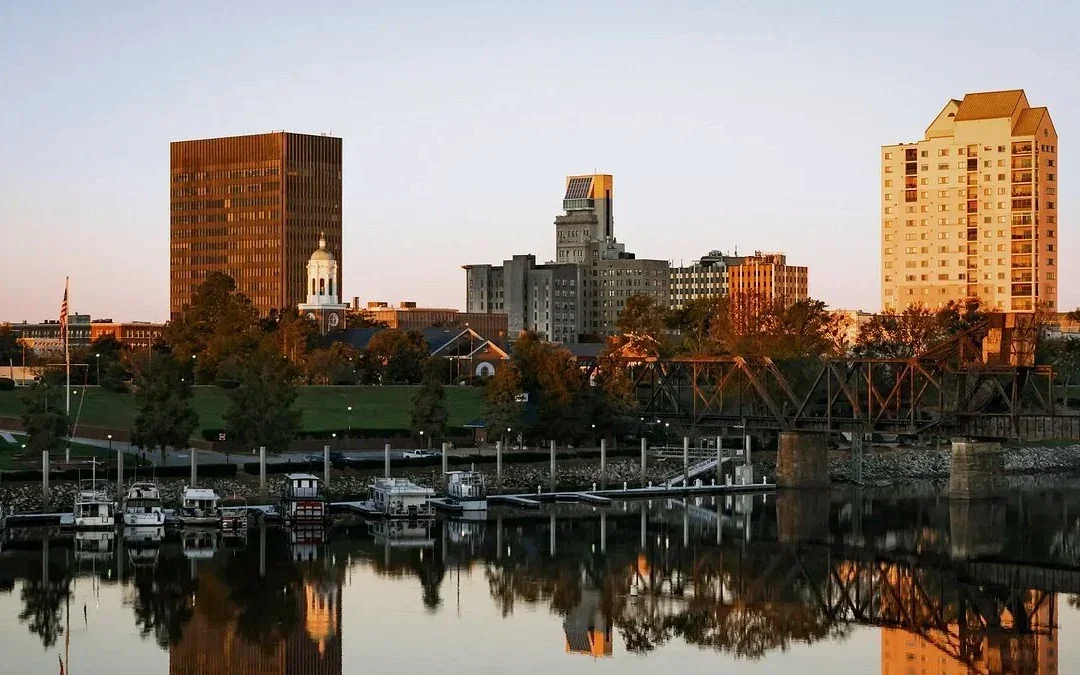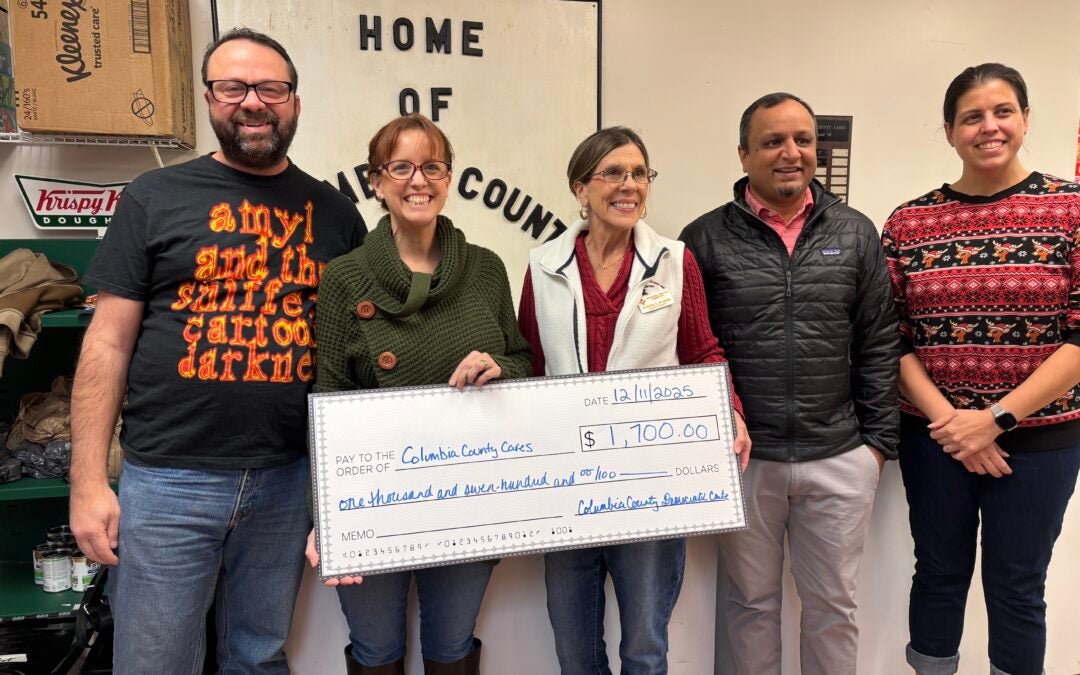Thanksgiving has not always been celebrated in the month of November. The original thanksgiving celebration was held by the Pilgrim settlers in Massachusetts during their second winter in “the new world” in December 1621. I am sure we all learned in American History that President Abraham Lincoln officially set aside the last Thursday of November, in 1863, “as a day of thanksgiving and praise to our beneficent Father.”
By way of a brief historical refresher, let us look back at what was the reason for that first Thanksgiving. Did you know that the event that Americans commonly call the “first Thanksgiving” was celebrated by the Pilgrims after their first harvest in the New World in 1621. The first winter for the passengers on the Mayflower was difficult. They were not prepared for the harsh New England winter. The cold had killed half of the original 102 colonists who came over on the Mayflower. They had no food. At one point, their daily food ration was down to five kernels of corn apiece, but then unexpected traders arrived, trading them beaver pelts for grain, providing for their severe need. The next summer’s crop was more hopeful, and Gov. William Bradford decreed that December 13, 1621, be set aside as a day of feasting and prayer, to show the gratitude of the colonists that they were still alive.
However, the year that followed was just as hard for these English pilgrims, as they suffered through another cruel New England winter. But fortunately, a bountiful Harvest blessed them that fall, offering a much-needed miracle. This was reason enough for them to give thanks and praise for their survival in this new land.
These Pilgrims, seeking religious freedom and opportunity in this new land, gave thanks to God for God’s provision and for having been given 20 acres (about the area of Chicago’s Millennium Park) of cleared Native land, where they would grow their own food, and most importantly, practice their newly found religious freedom. They were even given an interpreter to the Native Americans to help them communicate and build community. That first harvest consisted of feasting and games, prayers, sermons, and songs of praise — all important were in the celebration of thanksgiving. Three days were spent in feasting and prayer.
When faced with difficult circumstances, disappointments and failures, we can respond with fear, anger or despair or we can lift up our eyes to God. From that time forward, Thanksgiving has been celebrated as a time to give thanks to God for God’s gracious and bountiful provision.
On Oct. 3, 1863, during the Civil War, President Abraham Lincoln proclaimed a National Day of Thanksgiving to be celebrated on the last Thursday of November each year. Now we have come to the modern Thanksgiving Day observance.
In the United States, Thanksgiving Day is celebrated on the fourth Thursday in November, as specified in a joint resolution passed by Congress in 1941 and a proclamation issued by President Franklin D. Roosevelt in 1942.
Even though Thanksgiving, as celebrated in America today, is a secular national holiday, Thanksgiving, has its origins in the Biblical text. We can find references related to giving thanks and thanksgiving from cover to cover, particularly in the Hebrew Scriptures. Individuals offered up sacrifices out of gratitude in the book of Genesis. The Israelites sang a song of thanksgiving as they were delivered from Pharaoh’s army after the crossing of the Red Sea (Exodus 15). Later, the Mosaic Law set aside three times each year when the Israelites were to gather. All three of these times, (the Feast of the Passover) (Exodus 12:15-20), Harvest or Pentecost (Leviticus 23:15-21) and the Feast of Tabernacles (Leviticus 23:33-36). All these times involved remembering God’s provision and grace. Likewise, the book of Psalms is packed full of songs of thanksgiving, both for God’s grace to the Israelite people, and through God’s mighty deeds, as well as for God’s individual graces to each of us.
The religious context of Thanksgiving cannot be ignored. Just like anyone who celebrates this thanksgiving, people of faith as well as non-believers will spend their time giving thanks for the food on their table and the people around them. But most importantly. we will gather together in our family and extended family groups to nourish and build community, breaking bread and just being with one another; we all have so much to be thankful for this Thanksgiving.
Like the Native people who showed welcome and hospitality to the new settlers, remember that there are people out there who cannot afford a hot meal or a place to lay their heads this Thanksgiving. Life for them will be as hard as life was for those English Pilgrams that first Thanksgiving. So, do what you can to help them have a reason to give thanks. Lend a helping hand where you can. Look for ways to volunteer this Thanksgiving.
We, like the Pilgrims, have a choice. In life there will always be those things that we can complain about. Life was hard for the Pilgrims too. They had lost many loved ones that first harsh winter and were facing starvation and death, but they also had much to be thankful for; they survived amid their struggles. They were the beneficiaries of true friendship in the Native people who gave them a loving helping hand in their time of need.
So, what does it look like to give thanks? What first comes to mind is prayer and worship and sharing what we have with others, especially those in need. We can express our gratitude to the Creator with words privately or corporately. Regardless of our health, financial status or family situation, all of us can be equally thankful because we all equally share the very same hope of salvation and eternal life. That is something we can all sing and praise God for. The rest of the injustices in this world, we believe God will deal with in the fullness of time.
For me, Thanksgiving is about staying humble and remembering my ancestors’ struggles. I am thankful every day, for my life and everything that I acknowledge as pure, undeserved grace given freely to me by God and those in my life, both spiritual and material.
What about you this Thanksgiving? Are you able to give thanks for the bounty that is set before you on your dinner table, and appreciate everything and everyone that helped to get it there? And are you able to give thanks for your daily challenges, by being humble and trusting in the benevolence of others? My hope and prayer are that we can be thankful for both. I hope we all can be thankful for, and give praise to, the one for whom all blessings flow.
May the Creator of all things, seen and unseen, bless you this Thanksgiving.
Rev. Bill Alford is a retired priest who served St. Alban’s Episcopal Church for the last 30 years and who has been priest-in-charge of the Church of the Atonement in Hephzibah for the last three years. Originally from Albany, Ga., Rev. Alford is a Navy Veteran who sings with and who is on the Board of Directors for the Augusta Choral Society.










